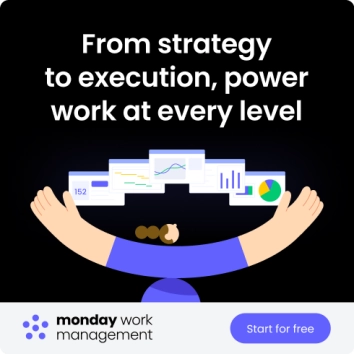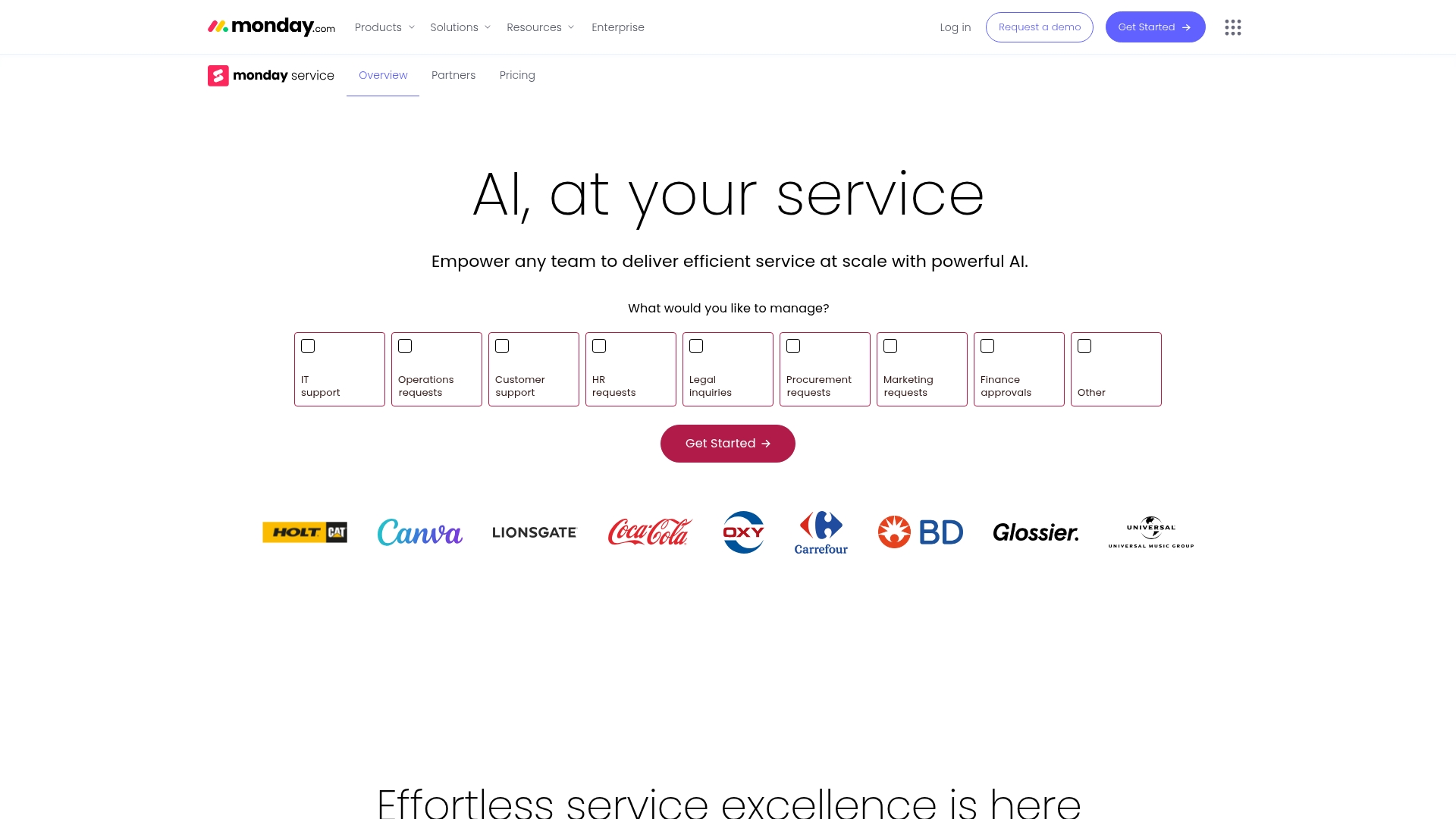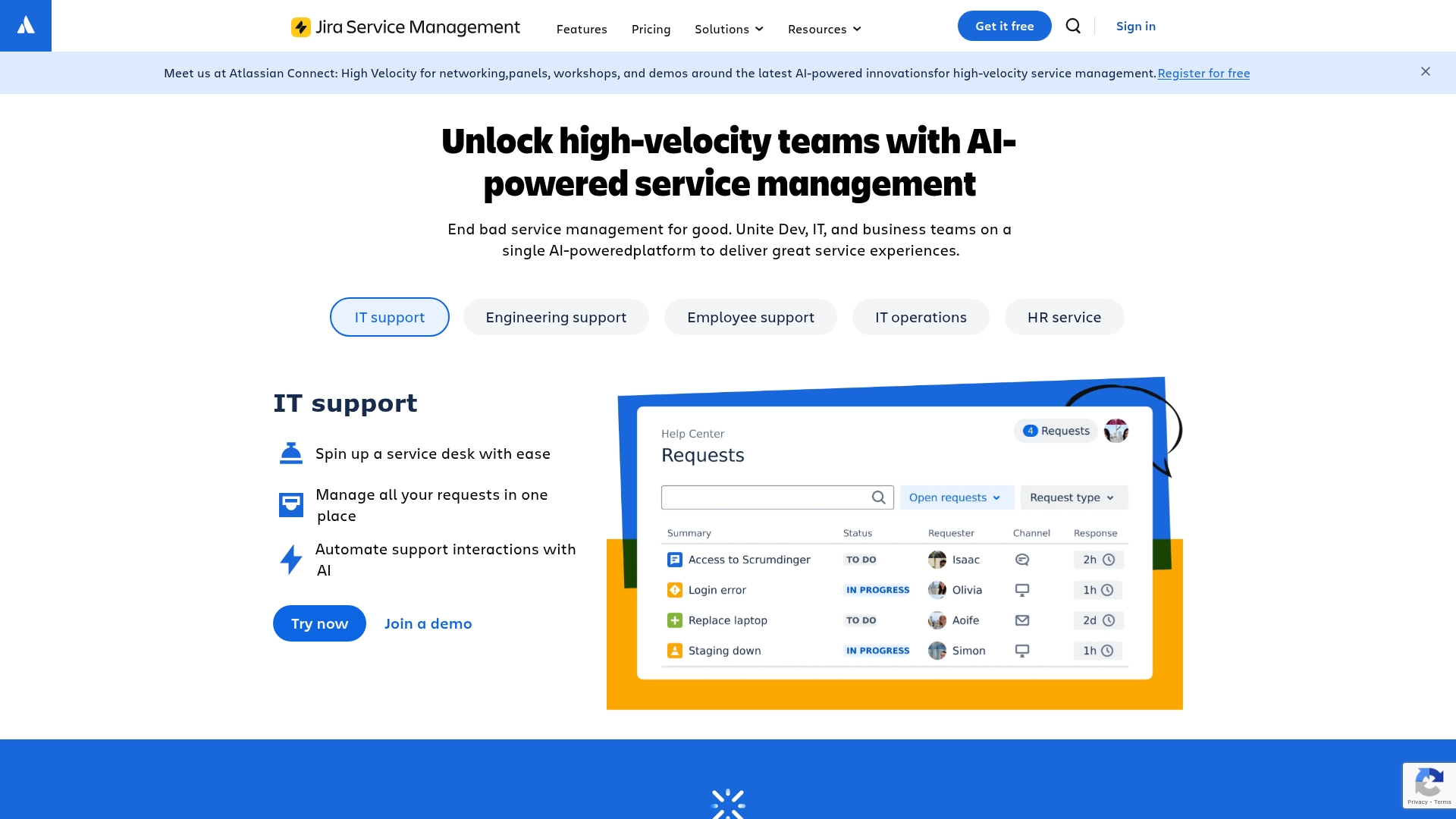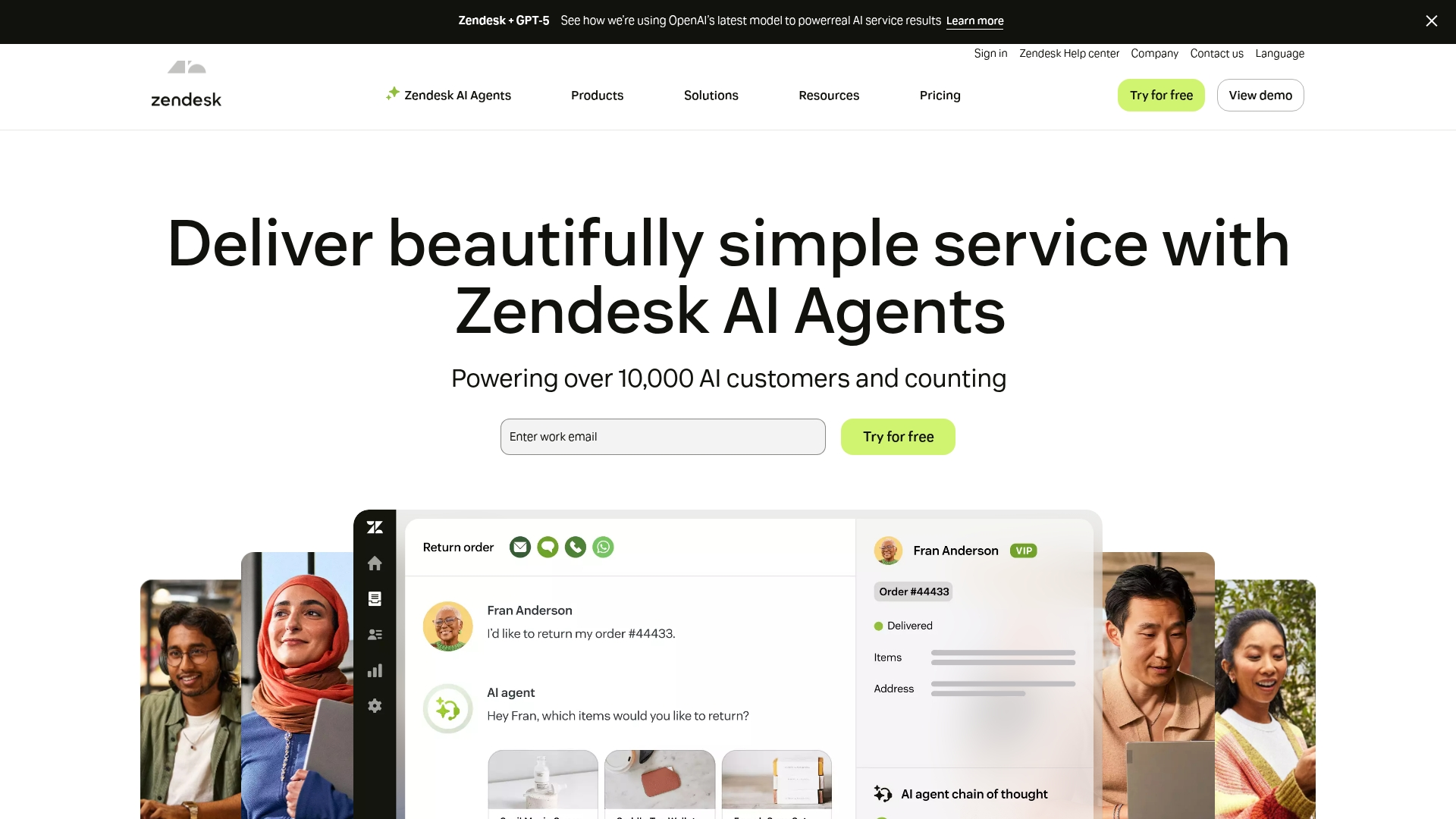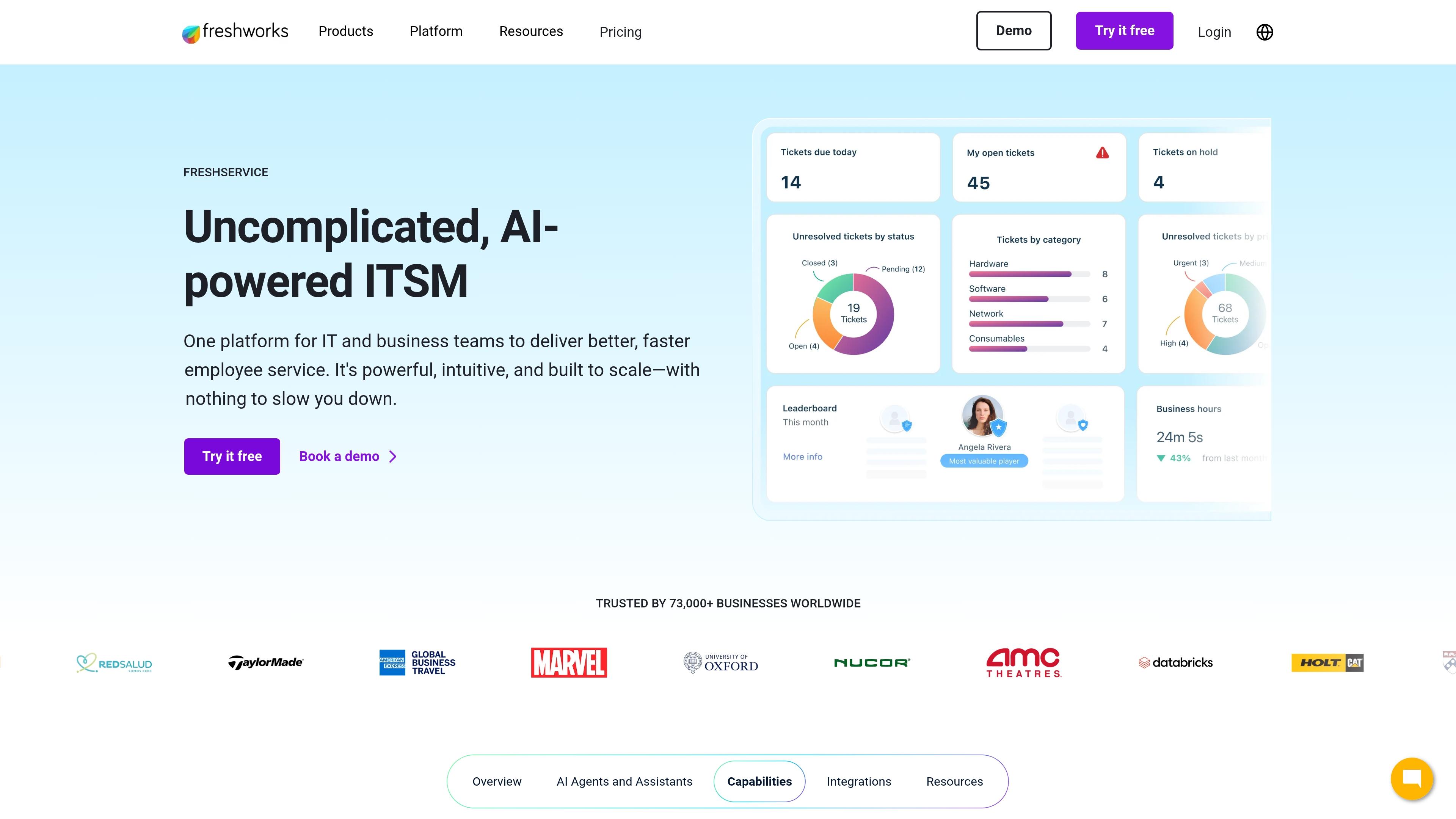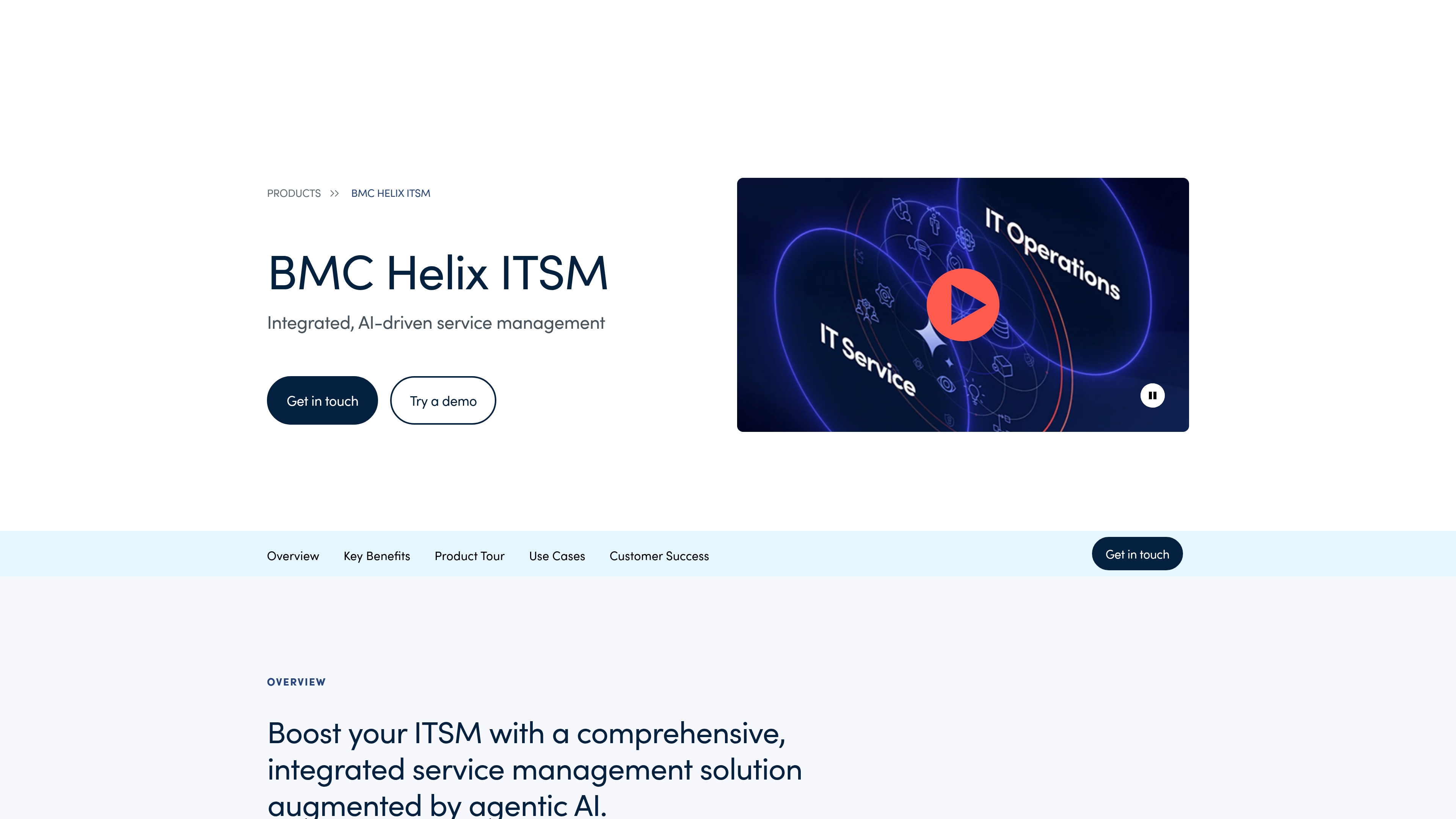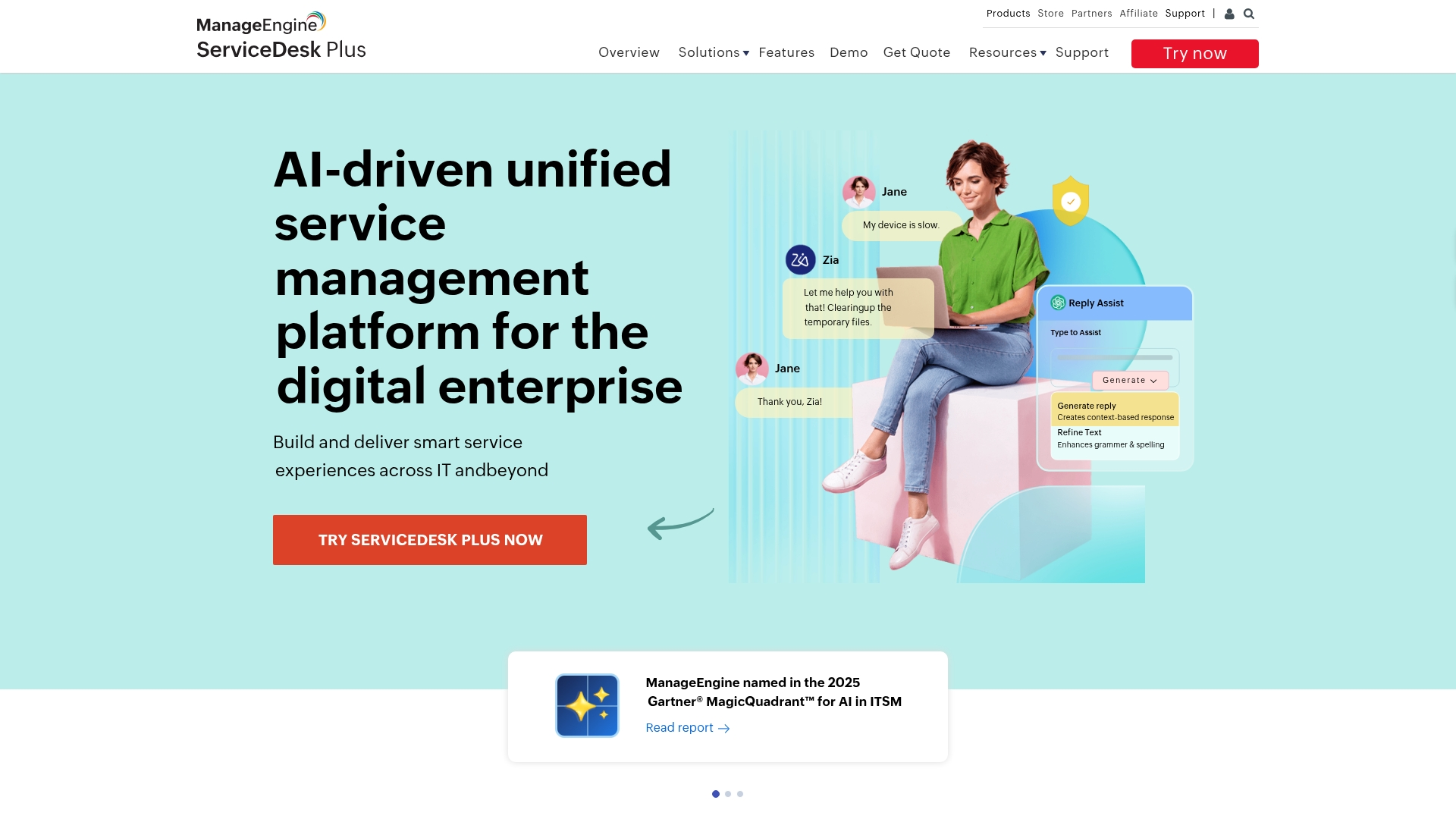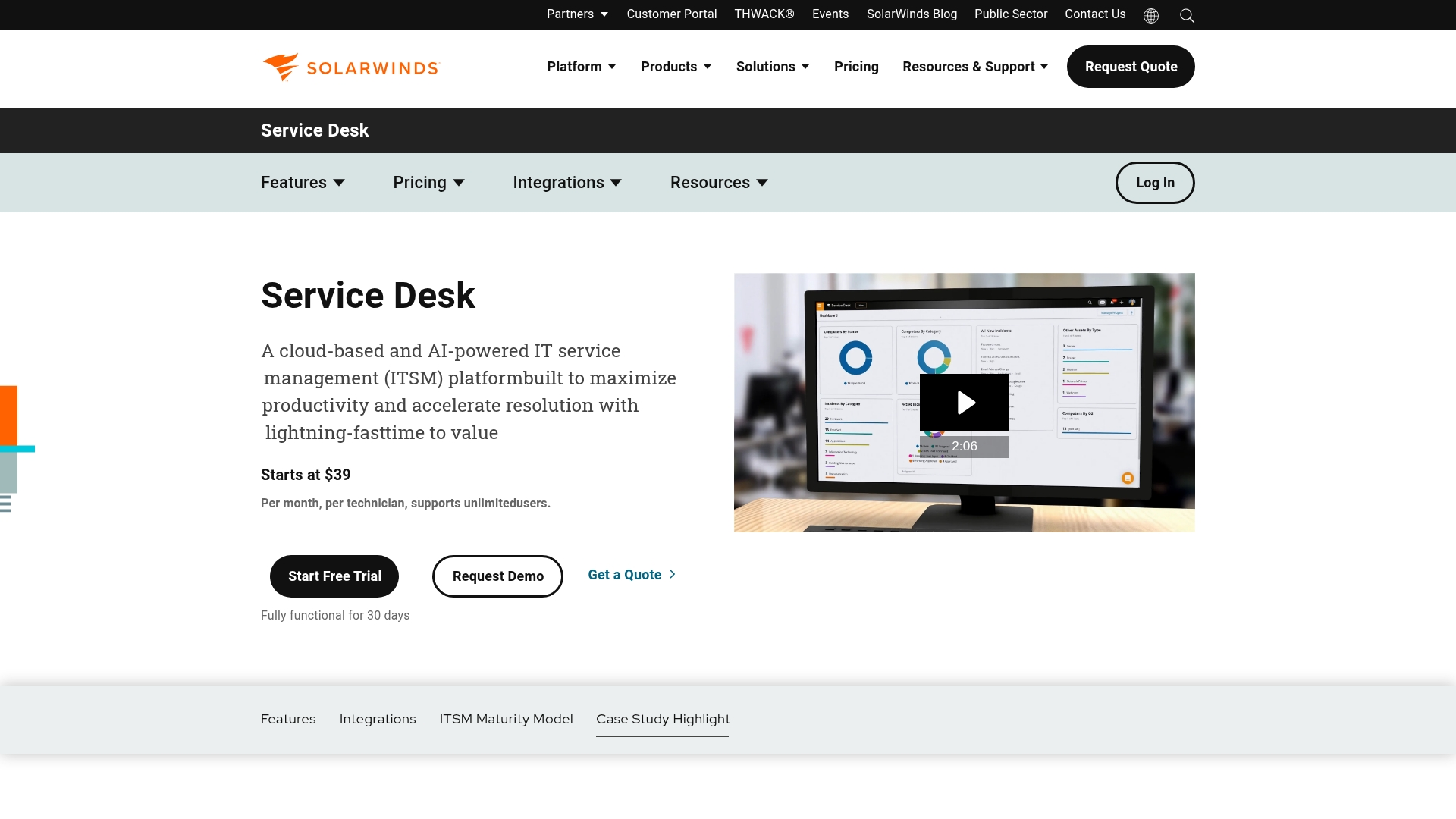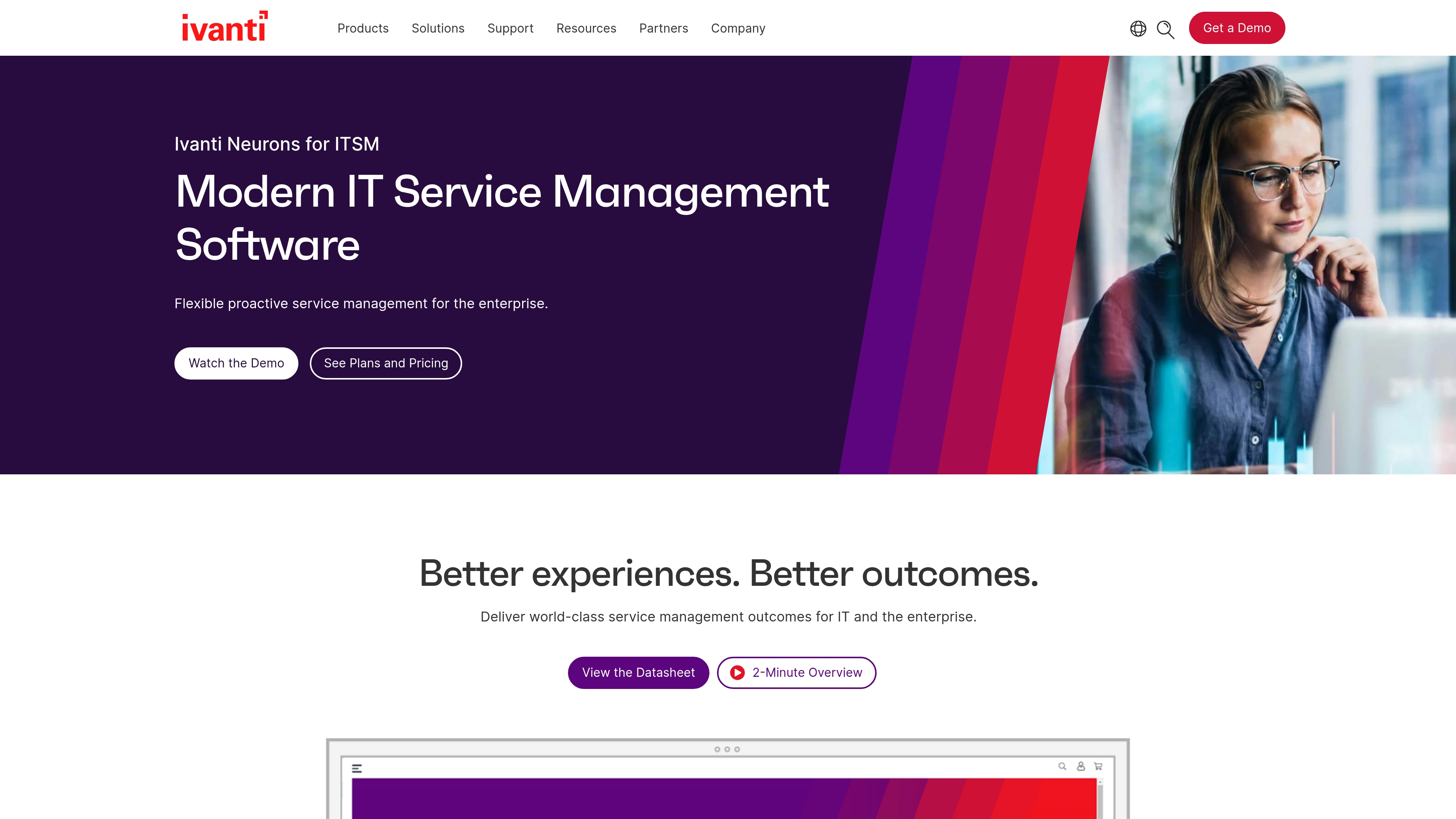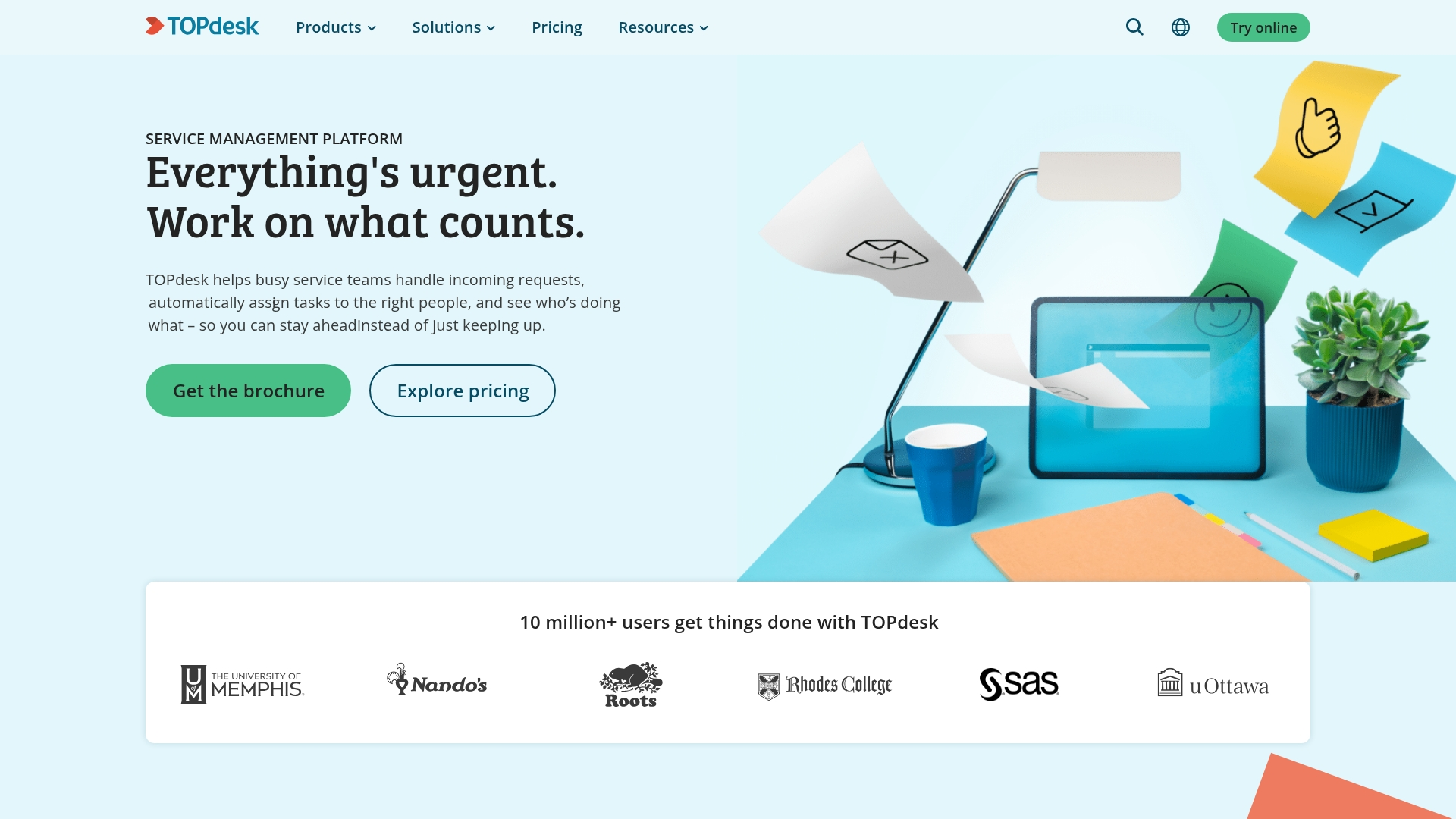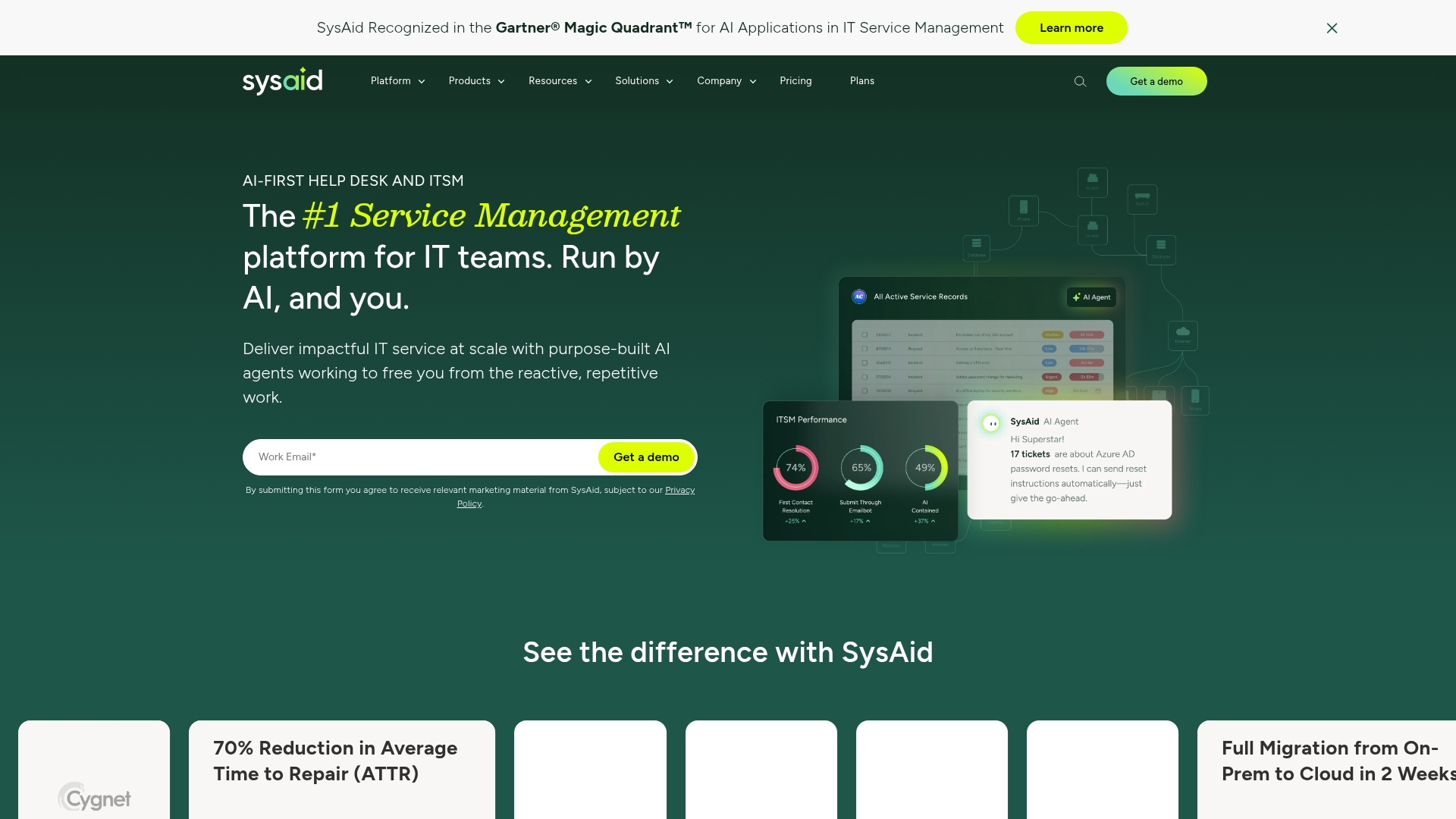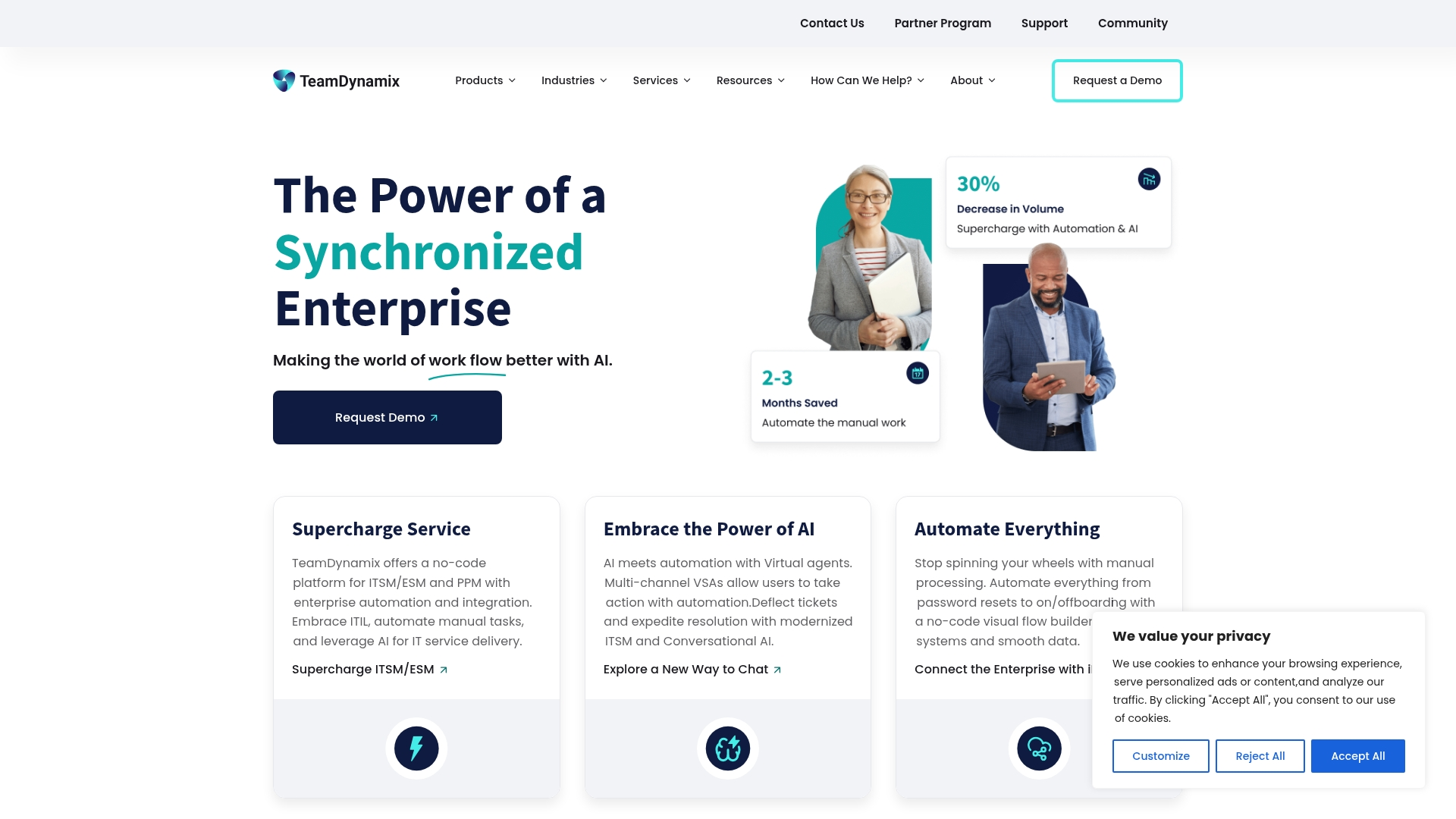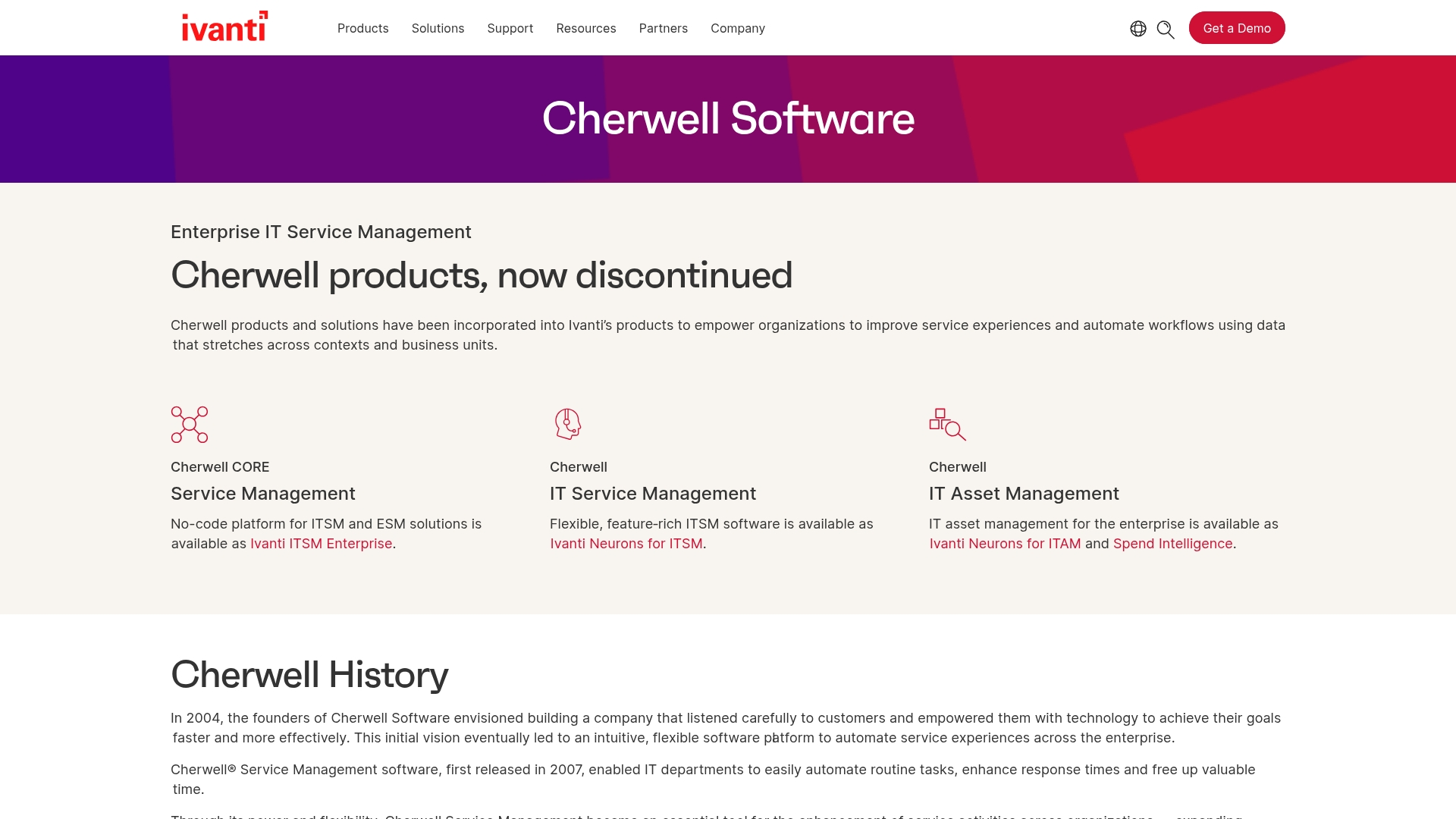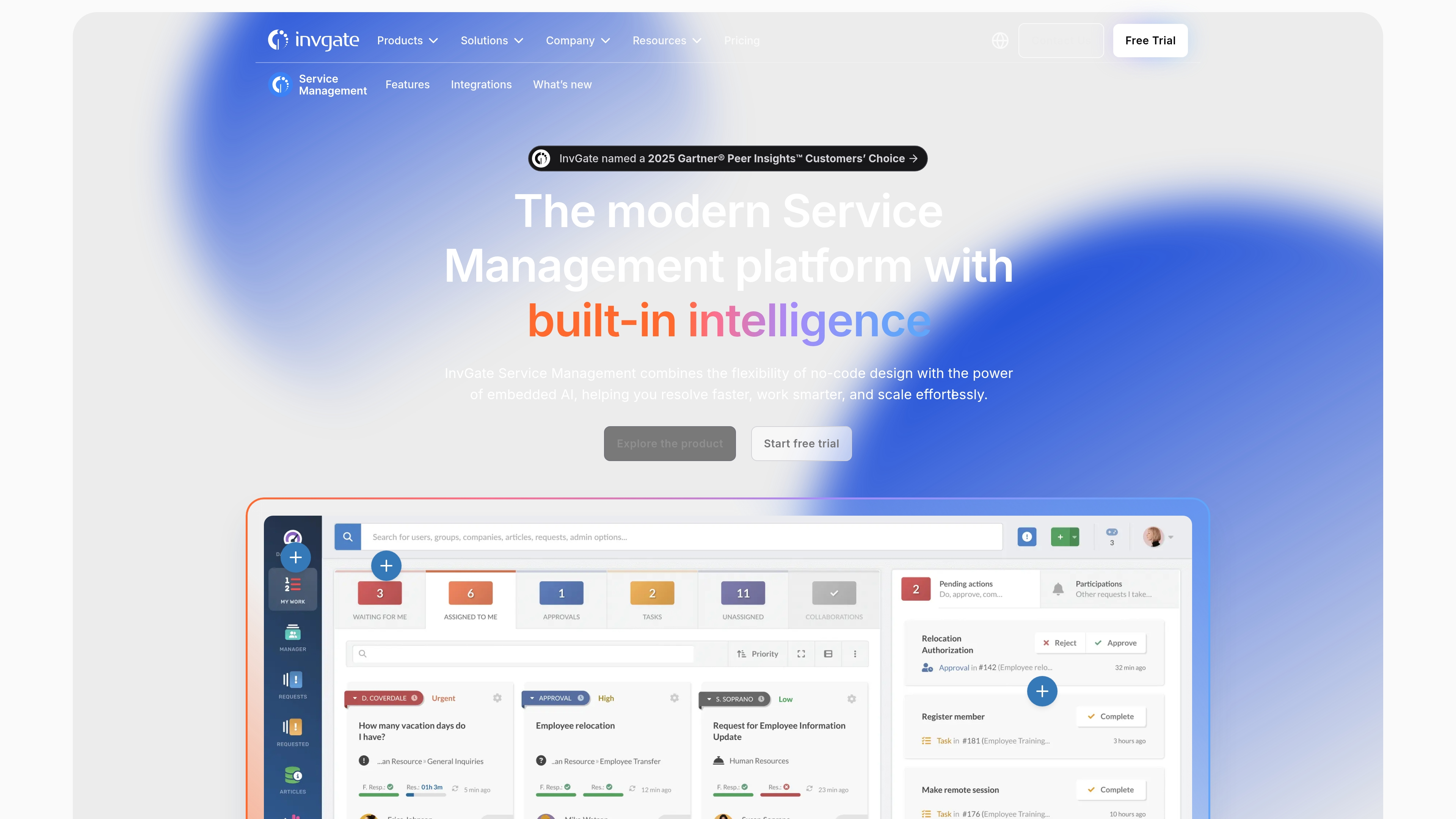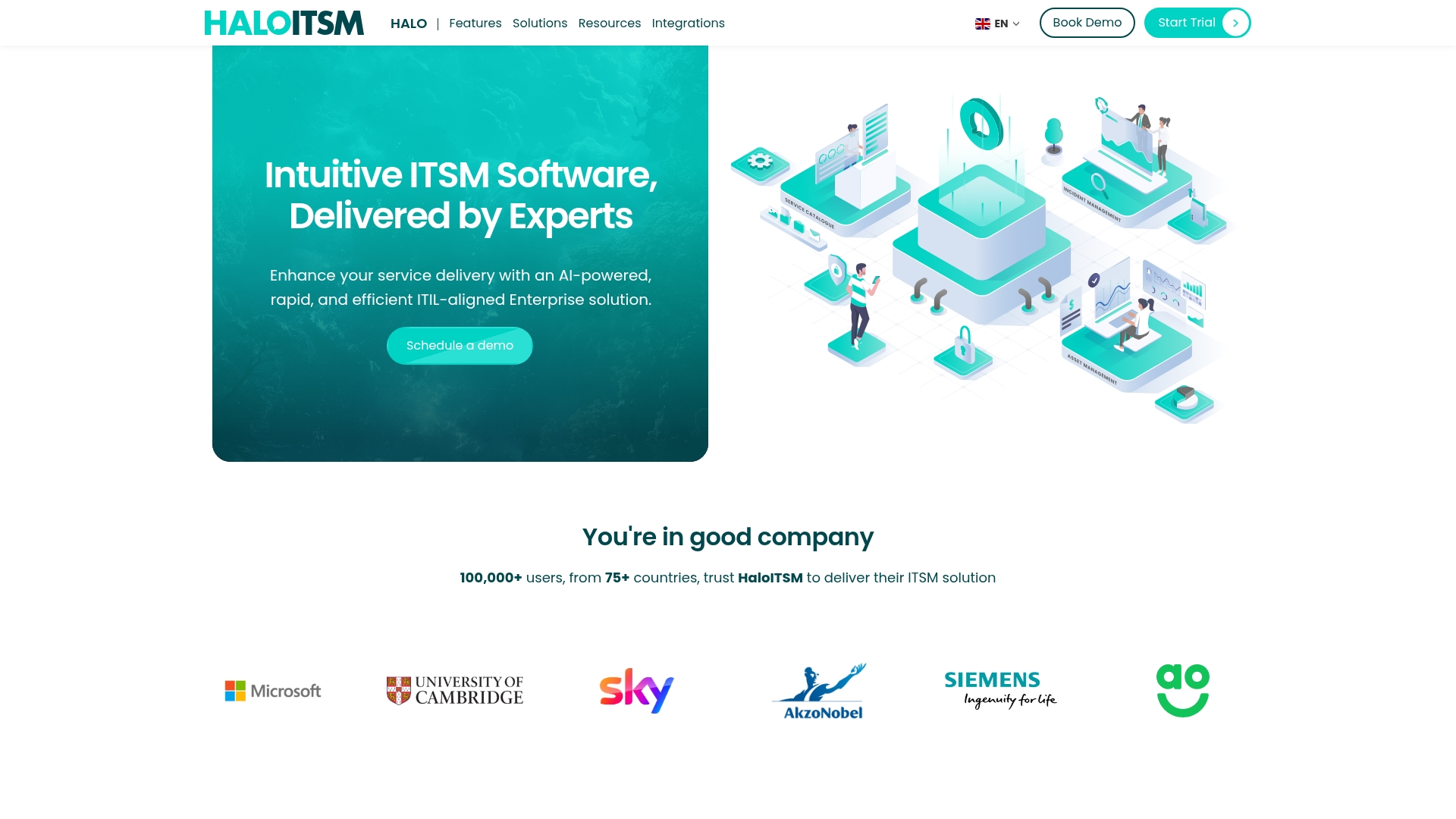Most organizations struggle with a hidden operational tax caused by fragmented service requests. When IT, HR, and facilities teams operate in separate silos, simple requests become complex bottlenecks, slowing down resolution times and frustrating everyone involved. This reactive approach keeps teams in a constant state of firefighting, preventing them from focusing on strategic work that moves the business forward.
The right ITSM software transforms this reactive environment by creating a single, unified system for all service delivery, built on the intuitive and flexible principles that power monday service. This guide breaks down everything you need to know to make an informed choice. We will explore the essential features and benefits of modern ITSM platforms, compare the 15 best solutions on the market, and provide a clear framework for selecting and implementing the right one for your team.
Try monday serviceKey takeaways
- Centralize tickets, knowledge, and SLAs on monday service to cut resolution times and increase visibility.
- Automate routing and responses with AI to reduce manual effort and lift agent capacity.
- Track live performance with dashboards to spot trends and adjust workflows in real time.
- Scale service management across IT, HR, and facilities on the monday service platform.
- Launch fast with no-code workflows, then expand with advanced analytics and automations.
What is ITSM software?
ITSM software functions as a strategic command center for IT operations, extending far beyond the capabilities of a simple ticket-tracker. It is a comprehensive system engineered to oversee the entire lifecycle of IT services. By integrating every request, incident, and change into a single, transparent workflow, organizations can transition from a reactive, problem-fixing posture to one of proactive service delivery.
A core function of an ITSM platform is to equip teams with a suite of powerful capabilities. These range from a clear service catalog, which simplifies user requests, to intelligent automations that manage routine workflows. The system facilitates the creation of a central knowledge base, which dismantles departmental silos by sharing critical information and providing necessary context to all stakeholders.
Ultimately, this establishes an operational rhythm that streamlines service delivery for both agents and end-users. Real-time performance visibility enables teams to identify trends, optimize workflows, and make informed decisions in the moment. While frameworks like ITIL provide valuable guidance, a modern ITSM platform offers the adaptability to tailor these best practices to an organization’s specific operational needs.
Essential features of modern ITSM software
Modern ITSM platforms win on outcomes, not checklists. Prioritize capabilities that speed work, increase clarity, and reduce manual effort.
- Unified request intake: Capture tickets from email, chat, and portals in one queue.
- AI-assisted routing: Classify, prioritize, and assign work automatically to cut response times.
- Knowledge management: Surface articles during intake and agent work to drive deflection.
- No-code automation: Trigger approvals, updates, and notifications without developer work.
- Real-time dashboards: Monitor SLAs, backlog, and trends to course-correct quickly.
- Asset and change tracking: Tie incidents to assets and track changes to reduce repeat issues.
- Cross-department workflows: Extend the same service model to HR, facilities, and finance.
Key benefits of ITSM software implementation
A modern ITSM platform replaces scattered emails and spreadsheets with one connected system that drives faster resolutions and clearer visibility. When teams have a single place to manage requests, knowledge, and performance data, service delivery becomes faster and more predictable.
- Faster resolutions: Automate ticket routing and handle routine requests instantly so teams focus on higher-value work.
- Smarter decisions: Use real-time dashboards to spot spikes, reprioritize queues, and adjust workflows before issues escalate.
- Reduced handoffs: Apply AI and automation to route complex issues directly to the right owner and resolve them sooner.
- Knowledge at hand: Build a searchable knowledge base that helps agents and employees find answers quickly.
- Operational clarity: Track SLA progress, identify bottlenecks, and plan resources with accurate, live data.
15 best ITSM software solutions
Selecting the right ITSM software is a critical decision that directly impacts team empowerment and service quality. To simplify this process, we have researched and compiled the leading solutions available. This guide provides a detailed comparison to help you identify the platform that best aligns with your organization’s operational goals.
1. monday service
monday service transforms service management with AI-powered automation that accelerates ticket resolution and routes requests intelligently across teams. It connects IT, HR, facilities, and other departments in one intuitive platform, simplifying complex workflows and centralizing every request, asset, and approval. Designed for growing organizations, monday service delivers enterprise-grade capabilities with the speed and simplicity teams need to scale efficiently.
Best for: Organizations that want modern ITSM with fast adoption and cross-team visibility.
Key features:
- AI classification and routing to reduce time to first response
- No-code workflow builder for approvals, escalations, and notifications
- Service catalog and customer portal for self-service and deflection
- Dashboards for SLA tracking, backlog, and agent performance
- Integrations for identity, collaboration, and monitoring tools
Pricing:
monday service offers flexible pricing options that fit teams of any size, starting at $26 per seat per month. Every plan includes a free trial and scales as your organization grows. Pricing is built for accessibility, making it easy for both small teams and large enterprises to adopt and expand service management quickly.
Why it stands out:
- AI-powered service automation: The built-in AI agent classifies, routes, and resolves routine requests in seconds using your knowledge base and ticket history, freeing agents to focus on complex issues.
- Cross-department connectivity: Manage IT, HR, facilities, legal, and other service requests in one shared platform to eliminate silos and improve collaboration across teams.
- No-code workflow builder: The visual drag-and-drop interface enables any team to design automations and custom workflows without developer support, accelerating setup and reducing administrative time.
2. ServiceNow
ServiceNow delivers comprehensive ITSM capabilities designed to transform how enterprises manage IT services and workflows. The platform specializes in unifying AI, automation, and analytics on a single architecture, making it the go-to choice for large organizations with complex IT environments.
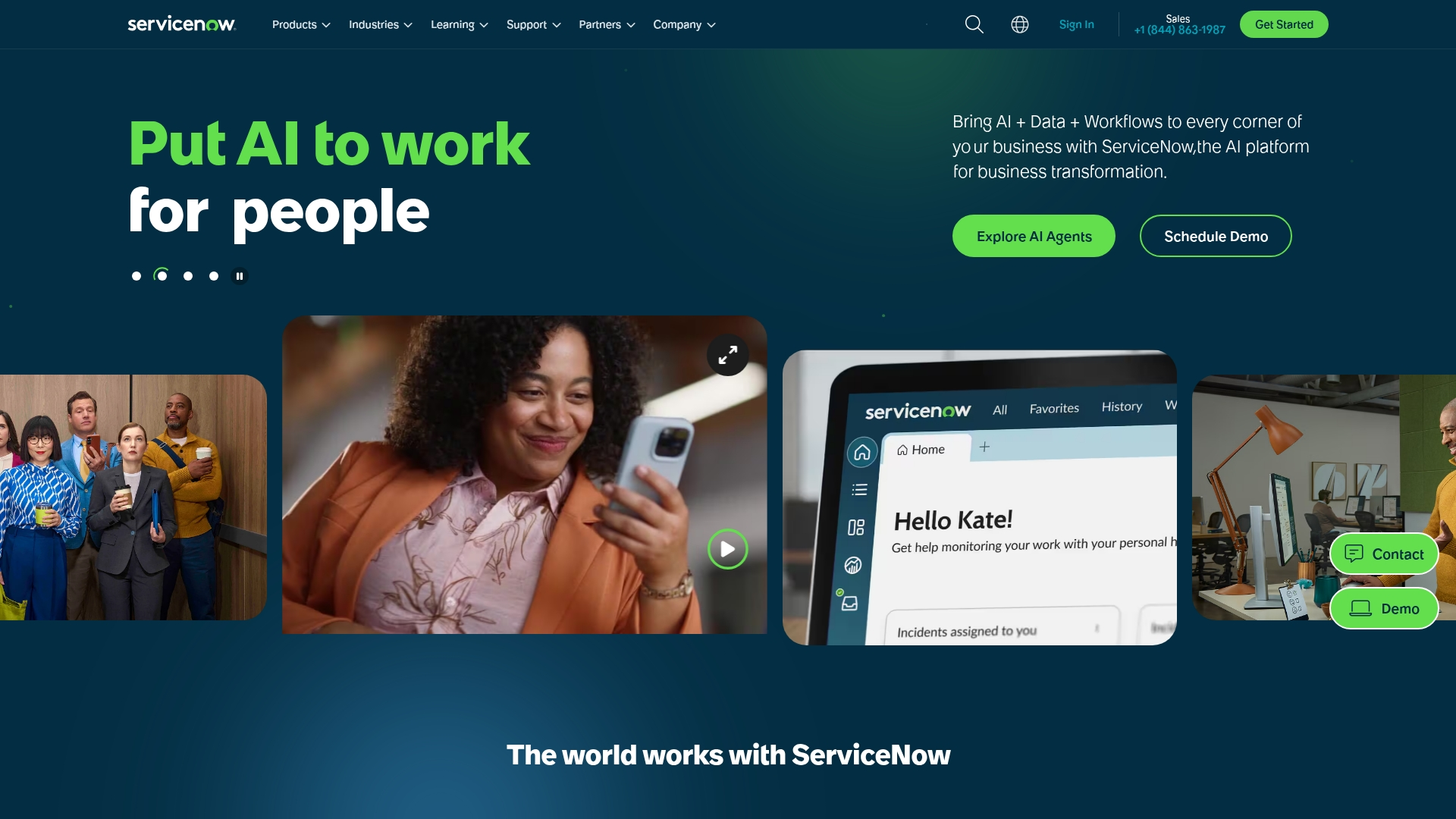
Key features:
- AI-powered incident management with intelligent routing, automated task completion, and predictive analytics to prevent recurring issues
- Comprehensive change management with real-time alerts, end-to-end visibility, and automated approval workflows
- 24/7 self-service portal with AI-enhanced search, mobile accessibility, and unified employee experience across all devices
Pricing:
ServiceNow offers customized pricing based on your organization’s size, users, and modules selected. Costs typically reflect enterprise-scale deployments and include implementation and support.
Considerations:
- High total cost of ownership including licensing, implementation, customization, and maintenance fees can be prohibitive for smaller organizations
- Steep learning curve and platform complexity often require specialized expertise and extensive training for both administrators and end-users
3. Jira Service Management
Jira Service Management transforms IT service delivery by seamlessly connecting development, operations, and business teams on one unified platform.
Best for: Organizations that want to unify IT and development workflows within the Atlassian ecosystem.
Key features:
- Native connectivity with Jira Software and development tools for seamless collaboration between dev and ops teams
- Atlassian Intelligence provides virtual agents, sentiment analysis, and smart suggestions to accelerate resolution times
- Extends beyond IT to support HR, legal, finance, and other business departments with customizable workflows
Pricing:
Jira Service Management provides tiered plans starting at $7.75 per user per month for standard service teams. Higher tiers include automation, analytics, and uptime SLAs, with enterprise pricing available on request.
Considerations:
- The interface can feel overwhelming for non-technical teams or new users unfamiliar with the Jira ecosystem
- Advanced customization often requires third-party apps from the Atlassian Marketplace, which can increase overall costs and complexity
4. Zendesk
Zendesk transforms IT service management by bringing the same customer-first philosophy that made it a leader in customer support to internal employee services. The platform specializes in creating unified, omnichannel experiences that make IT support feel as intuitive as modern customer service. With AI-powered automation and a beautifully simple interface, Zendesk makes complex ITSM processes accessible to teams of all sizes.
Best for: Companies seeking an easy-to-use ITSM tool that delivers consumer-grade experiences for internal support.
Key features:
- AI-powered ticket classification, routing, and autonomous resolution that handles common requests end-to-end without human intervention
- Multi-channel support through email, Slack, and Microsoft Teams with centralized workspace consolidation
- Comprehensive service catalog with 24/7 self-service capabilities and smart knowledge base integration
Pricing:
Zendesk pricing starts at $19 per agent per month for basic support features, with higher tiers including AI-powered automation and analytics. A free trial is available across all plans.
Considerations:
- Limited advanced ITSM capabilities compared to dedicated platforms like ServiceNow, making it less suitable for highly complex, ITIL-compliant processes
- Per-agent pricing model can become expensive as teams scale, with essential features like advanced reporting requiring higher-tier plans
5. Freshservice
Freshservice delivers AI-powered ITSM solutions that transform how mid-market organizations handle IT service delivery. The platform combines Freddy AI automation with an intuitive interface, making it perfect for teams who want enterprise-grade capabilities without the complexity.
Best for: Mid-market IT teams looking for AI-driven automation and asset management without heavy setup.
Key features:
- Intelligent ticket routing, sentiment analysis, and proactive insights that handle routine tasks while agents focus on complex issues
- Real-time tracking of hardware, software, and cloud assets with auto-updating CMDB integration
- Extends ITSM principles beyond IT to HR, facilities, and finance departments for organization-wide efficiency
Pricing:
Freshservice offers multiple plans that scale with feature depth and team size. While pricing varies by region, every plan includes Freddy AI, workflow automation, and a free trial.
Considerations:
- Reporting capabilities may feel limited for larger enterprises requiring advanced analytics and deep customization options
- The mobile app lacks full desktop functionality, which can impact field teams who need complete access on the go
6. BMC Helix ITSM
BMC Helix ITSM delivers enterprise-grade service management powered by cognitive automation and AI-driven insights. The platform specializes in transforming reactive IT support into proactive, predictive service operations, making it ideal for large organizations managing complex, multi-cloud environments. With deep ITIL alignment and advanced AIOps capabilities, it’s built to handle the most demanding enterprise service management requirements.
Best for: Global enterprises that need predictive analytics, AIOps, and large-scale service orchestration.
Key features:
- AI-driven incident clustering that automatically identifies patterns and root causes
- Cognitive service management to leverage machine learning for intelligent ticket routing, automated task classification, and predictive analytics
- Manages incidents, changes, and releases across various cloud providers with seamless integration and unified visibility
Pricing:
BMC Helix ITSM provides custom enterprise pricing based on deployment type, user volume, and service modules. Organizations can request a tailored quote to align with their requirements.
Considerations:
- Complex implementation and configuration often require vendor support, leading to higher total cost of ownership
- User interface can feel outdated compared to modern competitors, with a steeper learning curve for IT professionals
7. ManageEngine ServiceDesk Plus
ManageEngine ServiceDesk Plus delivers comprehensive ITSM functionality at a price point that won’t break the budget. The platform combines help desk, asset management, and project management into one unified solution, making it perfect for organizations that want enterprise-grade features without enterprise-level complexity.
Best for: Businesses that want enterprise-level ITSM and asset tracking at a cost-efficient price point.
Key features:
- Track and manage IT and non-IT assets throughout their entire lifecycle, from procurement to disposal
- Leverage Zia, the intelligent assistant, for conversational support, smart ticket routing, and workflow automation
- Extend ITSM best practices beyond IT to HR, finance, and other business departments
Pricing:
ManageEngine ServiceDesk Plus uses a quote-based model that depends on the number of technicians and features needed. Flexible on-premises and cloud plans make it cost-effective for growing teams.
Considerations:
- Interface complexity: While feature-rich, the platform can feel overwhelming for simple ticket management needs, with many advanced features potentially going unused
- Performance quirks: Some users report occasional slowdowns when executing certain tasks, and the asset management module can feel clunky compared to other components
8. SolarWinds Service Desk
SolarWinds Service Desk delivers comprehensive ITSM capabilities with deep integration into the broader SolarWinds monitoring ecosystem. The platform specializes in combining traditional service desk functionality with powerful IT operations visibility, making it ideal for organizations already invested in SolarWinds infrastructure monitoring tools.
Best for: IT teams already using SolarWinds monitoring tools who need native integration with IT operations data.
Key features:
- AI-powered automation for ticket routing, categorization, and prioritization with “if this, then that” workflow creation
- Integrated IT Asset Management (ITAM) capabilities for comprehensive hardware and software asset discovery and tracking
- Employee service portal with customizable interface and knowledge base access for self-service support
Pricing:
SolarWinds Service Desk starts at $39 per technician per month with unlimited users. All plans include ITIL modules, asset management, and a 30-day free trial.
Considerations:
- Some users report limitations in advanced reporting and analytics capabilities compared to enterprise-focused competitors
- Initial setup and implementation can be time-consuming despite the platform’s emphasis on quick deployment
9. Ivanti Neurons for ITSM
Ivanti Neurons for ITSM delivers AI-powered automation and comprehensive service management for enterprises seeking to modernize their IT operations.
Best for: Enterprises focused on proactive, AI-driven issue detection and automated service delivery.
Key features:
- AI-powered ticket classification and automated routing with generative AI for incident summarization and knowledge generation
- No-code/low-code workflow configuration with drag-and-drop interface for rapid customization without developer resources
- Integrated IT Asset Management software features (ITAM) providing complete visibility into hardware and software assets across the organization
Pricing:
Ivanti Neurons for ITSM offers tailored enterprise pricing based on users and deployment scope. Prospective customers can contact Ivanti for a custom quote and demonstration.
Considerations:
- Initial setup and customization can be complex, requiring significant time and specialized expertise for advanced configurations
- Customer support response times and documentation quality have received mixed feedback from users
10. TOPdesk
TOPdesk delivers comprehensive ITSM software that transforms chaotic IT environments into streamlined service operations. This Dutch-founded platform specializes in user-friendly design and modular implementation, making it perfect for mid-sized organizations seeking enterprise-level functionality without the complexity. With over 25 years of experience and a strong European heritage, TOPdesk has built a reputation for putting usability first.
Best for: Mid-sized organizations that want a modular, ITIL-aligned platform with strong usability.
Key features:
- Modular design allowing organizations to start with core functionality and expand over time
- Self-service portal with AI-powered chatbots and knowledge base for end-user empowerment
- Enterprise service management capabilities extending to HR, facilities, and other departments
Pricing:
TOPdesk offers three main plans, starting at around £51 per agent per month. Pricing scales with additional modules like change and project management.
Considerations:
- Reporting capabilities are limited compared to competitors, with some users finding them lacking in depth
- Significant customizations may require consultant assistance, potentially increasing total cost of ownership
11. SysAid
SysAid delivers comprehensive IT service management through an AI-first platform that transforms how organizations handle service delivery. The platform specializes in intelligent automation and asset management integration, making it ideal for mid-market companies seeking to streamline IT operations without the complexity of enterprise-level solutions.
Best for: Mid-market companies aiming to automate routine IT tasks and centralize asset management.
Key features:
- AI assistant that automatically categorizes, prioritizes, and assigns tickets while providing intelligent recommendations to agents
- Complete lifecycle tracking for hardware, software, cloud resources, and IoT devices with automated discovery capabilities
- No-code automation builder that creates complex processes for employee onboarding, change approvals, and ticket escalations
Pricing:
SysAid provides quote-based pricing across Standard, Pro, and Enterprise plans. Each includes a 14-day free trial and flexible licensing for cloud or on-premises deployment.
Considerations:
- Interface complexity can create a steeper learning curve for smaller teams with limited IT resources
- Email notification system generates excessive alerts that can overwhelm users and create communication noise
12. TeamDynamix
TeamDynamix delivers a unified ITSM and project management platform that eliminates the complexity of traditional service management tools. The no-code solution is specifically designed for higher education, government, and mid-market organizations seeking enterprise-grade functionality without the administrative burden. With its integrated approach combining service operations and strategic project oversight, TeamDynamix offers a refreshing alternative to fragmented, code-heavy platforms.
Best for: Public sector and education teams that need unified ITSM and project portfolio management.
Key features:
- Unified ITSM and Project Portfolio Management (PPM) dashboard for holistic work visibility
- No-code platform with visual workflow builder and drag-and-drop integrations
- AI-powered conversational support across multiple channels including Teams, Slack, and SMS
Pricing:
TeamDynamix pricing is available on request and depends on the modules selected, such as ITSM, project portfolio management, or enterprise integration. All plans include no-code configuration.
Considerations:
- Interface can appear outdated despite recent updates, with some backend inconsistencies requiring HTML knowledge
- Enhancement request process lacks clear prioritization system and can be slow to implement user suggestions
13. Cherwell Service Management
Cherwell Service Management delivered comprehensive ITSM solutions through its powerful no-code platform, empowering organizations to customize workflows without extensive coding knowledge. The platform specialized in flexible deployment options and user-friendly automation, making it ideal for mid-market companies seeking cost-effective alternatives to enterprise giants like ServiceNow.
Best for: Organizations seeking a customizable, no-code ITSM solution with flexible deployment options.
Key features:
- No-code/low-code platform enabling extensive customization without developer resources
- Flexible deployment options including on-premises, cloud, and hybrid environments
- ITIL-verified processes with PinkVERIFY certification for eleven core service management functions
Pricing:
Cherwell Service Management (now part of Ivanti) offered quote-based pricing before its sunset, with legacy customers supported through 2026. New users can explore migration options via Ivanti.
Considerations:
- Platform has been discontinued following Ivanti’s acquisition, with support ending December 31, 2026
- Some users reported performance issues with large databases and concurrent user loads
14. InvGate Service Management
InvGate Service Management delivers comprehensive ITSM capabilities with integrated asset management for mid-sized to enterprise organizations. The platform specializes in no-code workflow automation and AI-powered ticket management, making it ideal for IT teams seeking enterprise-level functionality without the complexity and cost of traditional solutions.
Best for: Mid-to-large enterprises that want robust ITSM and asset management in a no-code environment.
Key features:
- AI-powered ticket categorization and routing with automated workflow assignments
- No-code workflow builder for customizing service processes without technical expertise
- Integrated asset management linking hardware and software directly to service tickets
Pricing:
InvGate Service Management starts at $17 per agent per month for smaller teams, with Pro and Enterprise plans available for larger deployments. A 30-day free trial is included.
Considerations:
- Comprehensive feature set may overwhelm smaller teams with simple requirements
- Limited social media integration for ticket creation compared to some competitors
15. HaloITSM
HaloITSM delivers comprehensive ITSM software with transparent, all-inclusive pricing that eliminates the complexity of modular licensing. The platform specializes in high-level customization without requiring coding expertise, making it ideal for mid-market organizations seeking enterprise-grade functionality at a predictable cost.
Best for: Growing businesses that need full ITIL-aligned functionality and transparent, all-inclusive pricing.
Key features:
- AI-powered ticket management with automatic categorization, prioritization, and intelligent routing included at no extra cost
- Comprehensive ITSM modules including incident, problem, change, and asset management with full CMDB capabilities
- Drag-and-drop workflow automation engine that allows teams to customize processes without coding expertise
Pricing:
HaloITSM pricing starts at £55 per agent per month and includes all core ITIL modules. Transparent, all-inclusive pricing covers unlimited users and 24/7 support.
Considerations:
- Extensive customization options can create a steep learning curve for teams without deep ITSM experience
- Smaller market presence compared to industry leaders like ServiceNow may limit integration ecosystem and community resources
How to select the right ITSM platform
Choosing the right ITSM platform starts with one question: will your teams actually use it? Prioritize usability and adoption over long feature lists. A good solution feels natural for everyone—IT professionals managing incidents, HR teams handling onboarding, and every stakeholder in between. An intuitive interface helps people move faster and keeps productivity high.
Consider total cost of ownership, not just licensing. Implementation, setup, and maintenance all impact value. Look for platforms with no-code workflow builders and built-in AI so teams can configure and optimize processes on their own. This keeps operations agile and costs predictable.
Scalability matters as your business grows. Choose a platform that evolves with your needs, supports new services, expands automation, and adds analytics without requiring major rework. A flexible system lets teams keep improving service delivery without slowing down.
Try monday serviceITSM software implementation best practices
A successful ITSM rollout begins with understanding how work happens today. Map every step from request to resolution to uncover gaps and design a streamlined service catalog and optimized workflows within the new system.
Start small to build momentum. Launch a focused pilot with key stakeholders to test workflows, collect feedback, and prove early value. This approach turns initial adoption into lasting engagement across departments.
Define clear success metrics from day one with faster resolution times, higher satisfaction scores, and increased agent productivity. After launch, continue to optimize. Use real-time analytics and feedback to refine workflows and strengthen service delivery over time.
Transform your service operations with monday Service
Transform service management with monday service, the intuitive platform that unifies every part of your operation. Bring ticketing, knowledge management, and cross-department workflows together to deliver fast, connected service at scale.
AI automates repetitive work and classifies tickets instantly so teams can focus on complex issues. Real-time analytics highlight trends, making it easier to improve processes and performance in the moment.
Customize everything through a no-code interface with drag-and-drop controls. Connect all service teams on a single platform to boost collaboration, improve visibility, and deliver a seamless experience for every employee and customer.
Try monday serviceFAQs
What is the difference between ITSM software and ESM platforms?
ITSM software is built specifically for IT teams, while ESM (Enterprise Service Management) extends those service principles to every department, like HR and facilities. This allows you to unify all service requests into a single, collaborative workspace.
How much does ITSM software typically cost per user?
Pricing generally ranges from $10 to over $100 per user each month, depending on the platform's features and capabilities. Advanced platforms often deliver a faster return on investment by boosting efficiency across the entire organization.
Can ITSM platforms integrate with existing business systems?
Yes, top ITSM platforms integrate seamlessly with your existing tools like CRMs, HR systems, and monitoring software using APIs and pre-built connectors. This connects your entire tech stack and eliminates frustrating data silos.
How long does ITSM software implementation typically take?
Implementation can take anywhere from a few weeks to several months, depending on your team's size and complexity. Platforms with intuitive, no-code configurations significantly accelerate this timeline, getting teams operational much faster.
Do you need technical skills to manage ITSM software?
To manage ITSM software, you do not need advanced technical skills. Modern platforms are designed with no-code interfaces, empowering non-technical users to build workflows and manage processes on their own. This allows service managers to adapt quickly without waiting on IT for every adjustment.
What is the ROI of implementing ITSM software?
The ROI comes from reduced operational costs, faster resolution times, and higher employee productivity, with most teams seeing a return in 6–18 months. Quick wins are achieved through features like automation and self-service portals that immediately boost efficiency.
